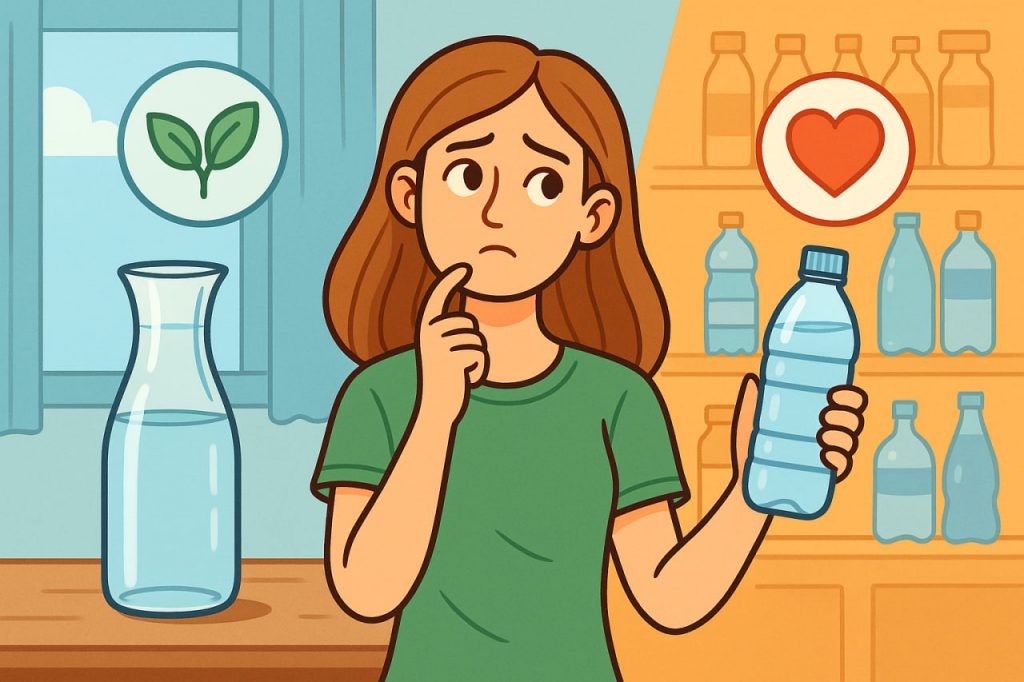Clean drinking water is essential for health, but many people wonder whether filtered water or bottled water is the better choice. Both options have advantages and disadvantages, depending on quality, cost, environmental impact, and personal needs. Understanding these differences can help you make the best decision for your lifestyle.
Filtered Water
Filtered water is tap water that has passed through a home filtration system, such as activated carbon filters, reverse osmosis, or mineralization systems.
Advantages:
- Cost-effective – cheaper in the long run compared to buying bottled water.
- Environmentally friendly – reduces plastic waste from bottles.
- Customizable – different filters can target chlorine, heavy metals, or bacteria depending on local water quality.
- Fresh at home – always available without storage or transport.
Disadvantages:
- Quality depends on the filter – ineffective or poorly maintained filters may not remove all contaminants.
- Maintenance required – filters must be changed regularly to remain effective.
- Local water supply – if tap water is heavily polluted, even filtration may not make it safe.
Bottled Water
Bottled water is processed, packaged, and sold in plastic or glass containers. It is often marketed as “pure” or “natural.”
Advantages:
- Consistent quality – usually meets strict safety standards.
- Convenient – easy to carry when traveling or in emergencies.
- Taste – some people prefer the taste, especially if it comes from mineral springs.
Disadvantages:
- Expensive – much more costly than filtered tap water.
- Environmental harm – plastic bottle production and waste cause serious ecological damage.
- Not always safer – some bottled water is simply filtered tap water, and microplastic contamination has been found in many brands.
Health Considerations
Both filtered and bottled water can be safe if handled properly. The key is to ensure water is free from harmful bacteria, heavy metals, and chemicals. If your local tap water is already high-quality, a home filter is usually sufficient. In areas with questionable water safety, bottled water may be a temporary solution.
Environmental Impact
Choosing filtered water helps reduce plastic pollution, one of the biggest ecological challenges. Bottled water contributes to millions of tons of plastic waste annually, much of which ends up in oceans.
Conclusion
For everyday use, filtered water is generally the healthier, cheaper, and more eco-friendly choice—provided your local water supply is safe and filters are properly maintained. Bottled water is convenient for travel and emergencies but should not be the main source of hydration due to cost and environmental impact. A combination of both, depending on circumstances, may be the most practical solution.
Glossary
- Reverse osmosis – a filtration process that removes most dissolved salts and impurities.
- Mineralization – adding essential minerals back into filtered water.
- Microplastics – tiny plastic particles found in bottled water and the environment.
- Contaminants – harmful substances in water such as chemicals or bacteria.
- Plastic pollution – environmental damage caused by plastic waste.


